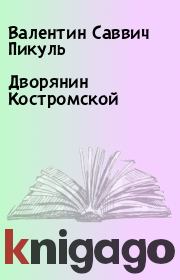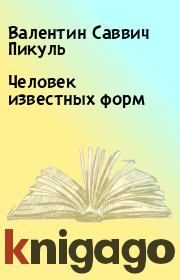Julius Chance - PreRussia
 | Название: | PreRussia |
Автор: | Julius Chance | |
Жанр: | Историческая проза, Древнерусская литература, Старинная литература | |
Изадано в серии: | неизвестно | |
Издательство: | SelfPub | |
Год издания: | 2022 | |
ISBN: | неизвестно | |
Отзывы: | Комментировать | |
Рейтинг: | ||
Поделись книгой с друзьями! Помощь сайту: донат на оплату сервера | ||
Краткое содержание книги "PreRussia"
The discoveries of recent years indicate that Russia may be older than Ancient Greece. This book includes the most valuable from dozens of sources and gives the reader a clear picture with the optimal amount of information from different fields of science on 28 pages with illustrations. At first the measured narrative gradually heats up the topic to the temperature of a supernova. The drawing "The Slavs serve their gods on the island of Ruyan" by an unknown author of the 19th century from the Wikipedia resource under CC License was used for the cover.
К этой книге применимы такие ключевые слова (теги) как: Самиздат,Древняя Русь,historie
Читаем онлайн "PreRussia". [Страница - 2]
- 1
- 2
- 3
- 4
- . . .
- последняя (15) »
The historian Natalia Pavlishcheva in her book "False Rurik. What historians are silent about", writes that the Varangian Rurik did not come to an "empty place" as by the IX century the Slavic civilization had flourished for several millenniums, having long ago formed a special way of life that was radically different from the Western one and was based not on "law and order", but on justice and will. She points out that Rurik was not called to "own us" at all – but was simply hired as an "effective manager", "equidistant" from all local clans and, thus, able to serve the national interests. The modern "Westerners" worshiping the European pseudo-democracy, do not want to understand the main thing – from time immemorial in Russia, then the government did not "own the people", but was its hired worker: an objectionable ruler could not only be kicked out of the princely chorus with a kick in the ass, but generally executed. Let us recall the execution of Prince Igor, who was tied to two birch trees for his brazen attempt to collect tribute from the Drevlyans twice and was torn apart in half. Even famous Alexander Nevsky was expelled from Novgorod, despite his victory over the Swedes on the Neva, because, contrary to the opinion of the Veche, he attempted forcing Novgorod to pay tribute to the Tatar-Mongol Horde, although the city was not conquered by it. And Alexander's father was also expelled from Novgorod. The same fate would have befallen Rurik, if he had not justified the trust of the Slavs. Pavlishcheva proves that Rurik's epic was not the "beginning of the beginnings", but only a passing chapter of the several thousand year chronicle of Russia. 3
The incorrectness of the official date of the emergence of Russia is confirmed even by the fact that the first "official and reliable" mention of the Russian state in foreign chronicles, recognized in the West, falls on the year 839. That is 23 years before the coming of Rurik. There is a mention in the Bertin Annals (the chronicle of the Saint-Bertin monastery in France) that the ambassadors of the Ross people arrived to the Byzantine emperor Theophanes in 839 to establish diplomatic and trade relations and that their ruler was a Khagan. Here the title of the ruler is somewhat surprising, but the Russian Khaganate apparently existed indeed as it is written below. The Arabs and sometimes the Slavs themselves (on especially solemn occasions) called the prince of Kiev by the word Khagan up to and including the X century (possibly under the influence of the Khazar Khaganate). Whether these ambassadors came from Novgorod, Kiev, Ladoga or another part of Russia is unclear.
Thus, long before the advent of Rurik the Russian state had already been establishing diplomatic and trade missions with the neighboring countries. The material collected by several generations of individual Russian scientists indicates that the age of Russian statehood is about the same as that of Ancient Rome and Ancient Greece. Although this point of view has not yet been officially recognized, it is gaining more and more supporters among scientists over time.
Mikhail Vasilyevich Lomonosov, in his work "Ancient Russian History from the beginning of the Russian people to the death of Grand Duke Yaroslav the First or until 1054," was resolutely against the "Norman" theory and wrote "about the distant antiquity of the Slavic people." Here is a quote from the 6th volume of his complete works (Moscow, Leningrad, 1952).
"At the beginning of the sixth century after Christ, the Slavic name became very famous; and the power of this people was not only terrible in Thrace, Macedonia, Istria and Dalmatia, but also contributed very much to the destruction of the Roman Empire. The Vends and Ants, uniting with their kindred Slavs, multiplied their strength. The unity of these peoples is not only shown by the current similarity in languages, but is also testified twelve hundred years ago by Iornand, who left the message that "from the beginning of the Vistula River to the north, there are populous Vendian peoples living in an immeasurable space, whose names, although different for different generations and places, but the Slavs and Ants are generally called." He also adds that from the Vistula they extend to the Danube and to the Black Sea. Before him, Ptolemy in the second century by Christ places the Vendians near the entire Vendian Bay named after them, that is, near the Finnish and Kurland bays. This author, moreover, let us know that Sarmatia was taken over by the great Vendian peoples. And Pliny also testifies that in his time the Vendians and Sarmatians lived near the Vistula… So, the Slavic-polish people justly call themselves Sarmatian; and I will not hesitate to conclude with Kromer that the Slavs and the Vendians in general are ancient Sarmatians… About antiquity [of the Slavs, – translator’s remark] we have a satisfied and almost obvious assurance in the greatness and power of the Slavic tribe, which has been standing on almost one measure for more than a thousand and a half years; and it is impossible to imagine that in the first century after Christ, it suddenly multiplied to such a great multitude..".
"In Southern Europe, the antiquity and power of the Slavs is evident from Herodotus, who Venedov and the Illyrians regard as one people and describe their habits, similar to those of the Medes [Euterpia, p. 36; Terpsichore, p. 128], which confirms the unity shown above. The antiquity of the Illyrians extends to fabulous centuries; the strength of their military dealings with the Greeks and Romans is known."
"Campaigns from the north of the Goths, Vandals and Lombards serve a lot to prove the multiplication of Slavic power. For although I separate them fairly from the Slavic generations, however, I have good reasons to assert that Slavs made up a considerable part of their armies; and not only ordinary, but also the main leaders were of Slavic breed. So, now it is quite clear how great the Slavic tribe was already in the first centuries after the Birth of Christ."
Lomonosov also claimed, based on the results of his historical research, that the Varangians were not a nationality, but a certain social group and could be either Swedes or Danes, or Slavs. He substantiates that the Varangians invited to Novgorod were the Slavs who lived on the shores of the Baltic between the Dvina and the Vistula and Rurik himself was the grandson of the Novgorod prince Gostomysl who invited him. Michael Lomonosov believed that Prince Rurik was a Slavic Varangian prince from Prussia, not Scandinavia. "The eastern shoulder of the Nemeni River, flowing into the Gulf of Kursk, is called Rusa which bears the name of the Varangian Russ." That is the name Rus (as well as Ros) has a purely Slavic origin and not brought from the outside by another people. And the Russian people have their roots as ancient as the Greeks and Romans do or even older. This is the essence of the "Lomonosov’s theory".
Lomonosov also points out the absence of --">- 1
- 2
- 3
- 4
- . . .
- последняя (15) »
Книги схожие с «PreRussia» по жанру, серии, автору или названию:
 |
| Валентин Саввич Пикуль - Дворянин Костромской Жанр: Историческая проза Год издания: 1993 |
 |
| Валентин Саввич Пикуль - Человек известных форм Жанр: Историческая проза Год издания: 1993 |
 |
| Наталья Павловна Павлищева - Ложный Рюрик. О чем молчат историки Жанр: Историческая проза Год издания: 2014 |
 |
| Виктория Фокс - Тайна старого фонтана Жанр: Самиздат, сетевая литература Год издания: 2018 |


